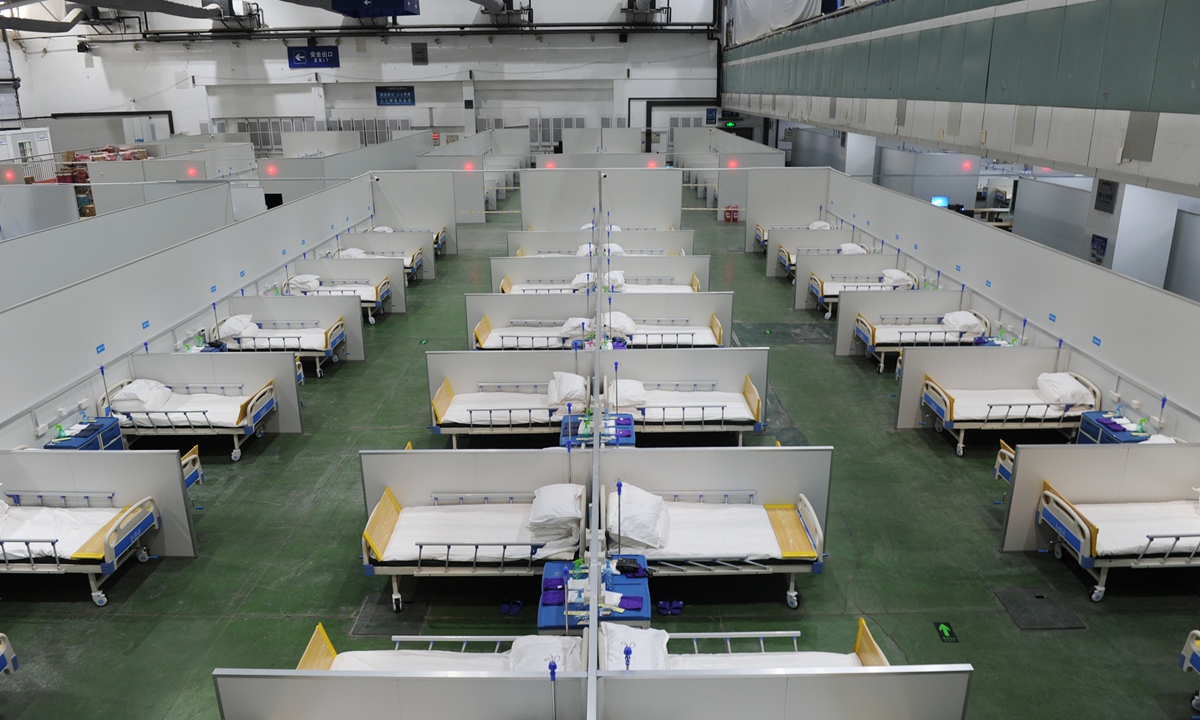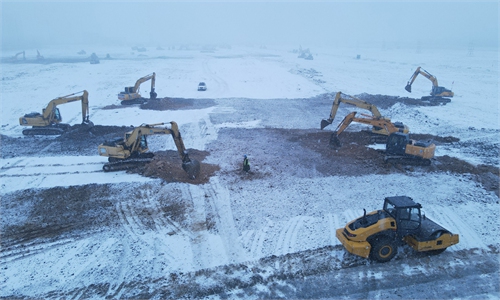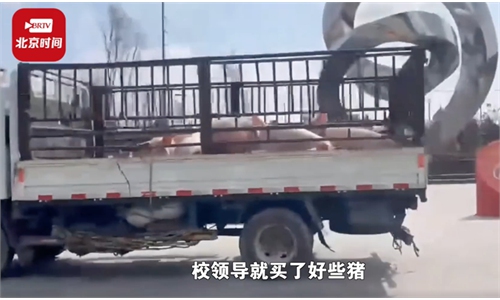'Fight to the finish': Jilin builds 8 makeshift hospitals, vows to bring outbreak under control ASAP

A makeshift hospital with 1,500 beds is ready to receive COVID-19 patients in Changchun, Northeast China's Jilin Province on March 15, 2022. Photo: VCG
Northeast China's Jilin Province has built eight makeshift hospitals and two quarantine centers to cope with the surge of COVID-19 cases. The Party chief of the province said that the battle against the Omicron outbreak is at a crucial stage, and asked the province to "race against time" and concentrate all resources to bring the outbreak under control as soon as possible.
Jilin detected 1,853 infections, including 1,456 confirmed cases, on Tuesday.
"This is a fight to the finish, and we are at the key stage, where everyone must race against time and concentrate all resources so as to control the spike as soon as possible and prevent it from spreading to other places outside Jilin," said Jing Junhai, Party chief of Jilin, on Tuesday night.
Eight makeshift hospitals have been built in Jilin, providing 11,488 beds. Two makeshift quarantine centers were also in place with 662 separate rooms, said Gao Peng, chief physician of the department of respiratory and critical care medicine of the Second Hospital of Jilin University, at a press conference on Wednesday.
Two more hospitals with more than 5,000 beds and five quarantine centers with more than 27,500 rooms are also under construction, Gao said. Among these, one center covers 430,000 square meters and contains 6,000 rooms equipped with separate toilets.
The makeshift hospitals and quarantine centers have mostly been built in Jilin city, Hunchun and Changchun, three places hit hard by the epidemic in the province.
"The experience of the anti-epidemic fight across the country in the past two years has shown that temporary hospitals and quarantine facilities play an important role in housing and treating patients or people with risks of infection, which is conducive to controlling infection and cutting transmission routes," said Gao.
Four medical teams have been deployed from Northeast China's Heilongjiang, East China's Jiangxi, Central China's Henan Province and North China's Inner Mongolia Autonomous Region to aid Jilin in medical treatment, nucleic acid testing, quarantine and transportation of patients. Liaoning, a neighboring province of Jilin, also dispatched more than 30 negative pressure ambulances as assistance.
The Global Times learned that the emergency medical rescue team of the People's Hospital of Wuhan University, which managed the makeshift hospital in Wuhan's Wuchang district, one of the first makeshift hospitals in China, also went to Jilin city, on Tuesday morning.
A Beijing-based immunologist who requested anonymity told the Global Times that prospects are promising to cut off community transmission in Jilin Province soon if a more decisive and strict policy is adopted, noting that the main challenge for the province is how to mobilize and coordinate all resources in the anti-epidemic work.
The immunologist also pointed out that the vast rural areas in Jilin should be given more attention, as these areas lack human resources and have low testing capacity, which means that it's easier for infections to occur.
According to Gao, patients with severe symptoms will be sent to designated hospitals, while those who are asymptomatic or have mild symptoms will be sent to makeshift hospitals.
Jilin city has already designated more than 15,000 rooms in 220 hotels to be used for close contacts' quarantine, and the makeshift quarantine center in Gaoxin South District will be put into use from next Tuesday, with nearly 2,000 workers and more than 300 machines continuously functioning 24 hours a day, reported CCTV News.
Li Luyao, a medical worker at one of the makeshift hospitals in Jilin city, told the Global Times on Wednesday that the burden on the medical teams at the designated hospitals in Jilin has now eased, with the makeshift facilities being put into use, which has greatly freed up resources for those patients in greater need.


